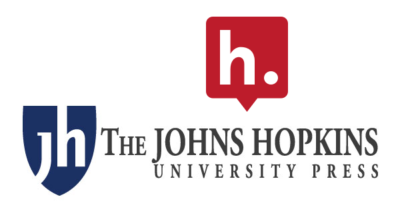JHUP and Hypothesis Partner to Enable Annotation on Modernism/modernity
 The Johns Hopkins University Press (JHUP) has partnered with Hypothesis to bring standards-based annotation to Modernism/modernity, the official journal of the Modernist Studies Association (MSA) published on JHUP’s Print Plus platform. The integration will launch later this spring with branded and moderated annotation layers, including one for general discussion and one reserved for authors and invited experts to update articles and place them in wider contexts.
The Johns Hopkins University Press (JHUP) has partnered with Hypothesis to bring standards-based annotation to Modernism/modernity, the official journal of the Modernist Studies Association (MSA) published on JHUP’s Print Plus platform. The integration will launch later this spring with branded and moderated annotation layers, including one for general discussion and one reserved for authors and invited experts to update articles and place them in wider contexts.
Offering annotation on the journal opens great new possibilities for scholarship and learning. More than a year ago, the W3C standards body approved annotation as a web standard, enabling a future where annotation clients are built natively in browsers and readers using different standards-based products can interact with one another seamlessly.
“As a librarian and editor, I value tools that allow members of the community to communicate freely with one another in the exchange of ideas. Hypothesis’ open web-annotation framework is the first real example of a tool that encourages a new, truly open Republic of Letters for scholarly communication long promised by the web,” said J. Matthew Huculak, the Print Plus platform technical advisor and Modernism/modernity‘s former Managing Editor. “With group annotation, classrooms will be able to engage directly as a community with the peer-reviewed content provided on our open-access platform, allowing for new ways of collaborative reading and critique. I can’t wait to see how students and faculty learn from each other’s readings of the text, and to see the rise of the scholarly Republic of Annotations.”
These new capabilities for Modernism/modernity give JHUP the opportunity to initiate annotation in an environment that goes beyond basic journal publishing. “We built the Print Plus platform with the MSA and the editors of Modernism/modernity because we wanted to put into practice many of the concepts that have emerged in the area of the digital humanities and to imagine how much more an academic journal could be in this age of digital media.” notes William Breichner, Journals Publisher at JHUP. “We are very pleased to be working with Hypothesis, the leader in web annotation, to make this project truly collaborative.”
Hypothesis is especially excited to support annotation with a partner that is leading innovation in publishing to engage not just researchers, but also wider communities in teaching and learning. “We’re thrilled to bring annotation layers to the Modernism/modernity journal,” notes Heather Staines, Director of Partnerships for Hypothesis. “The Print Plus platform offers an innovative forum for scholars, instructors, and students to collaborate around content related to the history of modernism. We’re eager to see how this interdisciplinary group will utilize annotation as part of their research and learning workflows.”
Spend just a couple of minutes helping shape I Annotate 2019. We’re especially interested in your thoughts about the timing and location of the event.